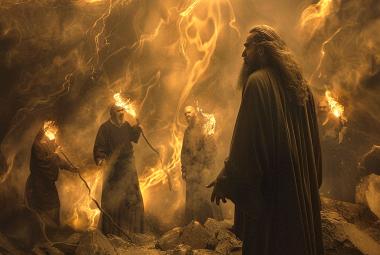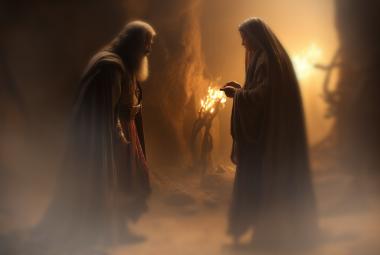Q: In Psalms, we frequently encounter the word, Selah. What does it mean?
A: Selah means to lift up, or exalt. The word selah is from two roots: s_lah, to praise; and s_lal, to lift up. It is commonly assumed that this can also refer to a technical musical term showing accentuation, pause, or interruption, as the Psalms were, indeed, the hymnbook of Israel.1
Selah does connect the end of one strophe with the beginning of the next; and, in four cases it connects the end of one Psalm with the beginning of the next, thus uniting the two Psalms (Ps 3 with 4; 9 with 10; 24 with 25; and 46 with 47). Selah is, thus, a connector: it connects the two passages between which it is placed. However, it appears that selah is to connect with subject matter, not with music; with truth, not tunes. It is a "thought-link" which bids us to look back at what has been said and to mark its connection with what is to follow, or to some additional consequent teaching.2 It is neither the pausing on one subject nor the passing on from one subject to another, but it is the connecting of the two subjects together. Sometimes it is the structures that are connected. Sometimes it is synthetic, and adds a development of thought by connecting a prayer with that which forms the basis for it. Sometimes it is antithetic, and adds a contrast. And sometimes it connects a cause with an effect, or an effect with a cause.
Thus, if it be derived from salah, "to pause," it is not the instruments of music which are to pause while voices continue to sing; but it is our hearts which are to pause and to note the connection of precious truths. If it is derived from salal, "to lift up," then it is not the instruments which are to lift up their sound in louder degree, but our hearts which are to be lifted up to consider more solemnly the two truths which are thus connected.
Notes:
- A similar but different word, [l;s, Selah, ("the rock") is a place in Edom, perhaps an early name for "Petra" (2 Kgs 14:7; Isa 61:1).
- Bullinger, E.W., The Companion Bible, Appendix 66.





